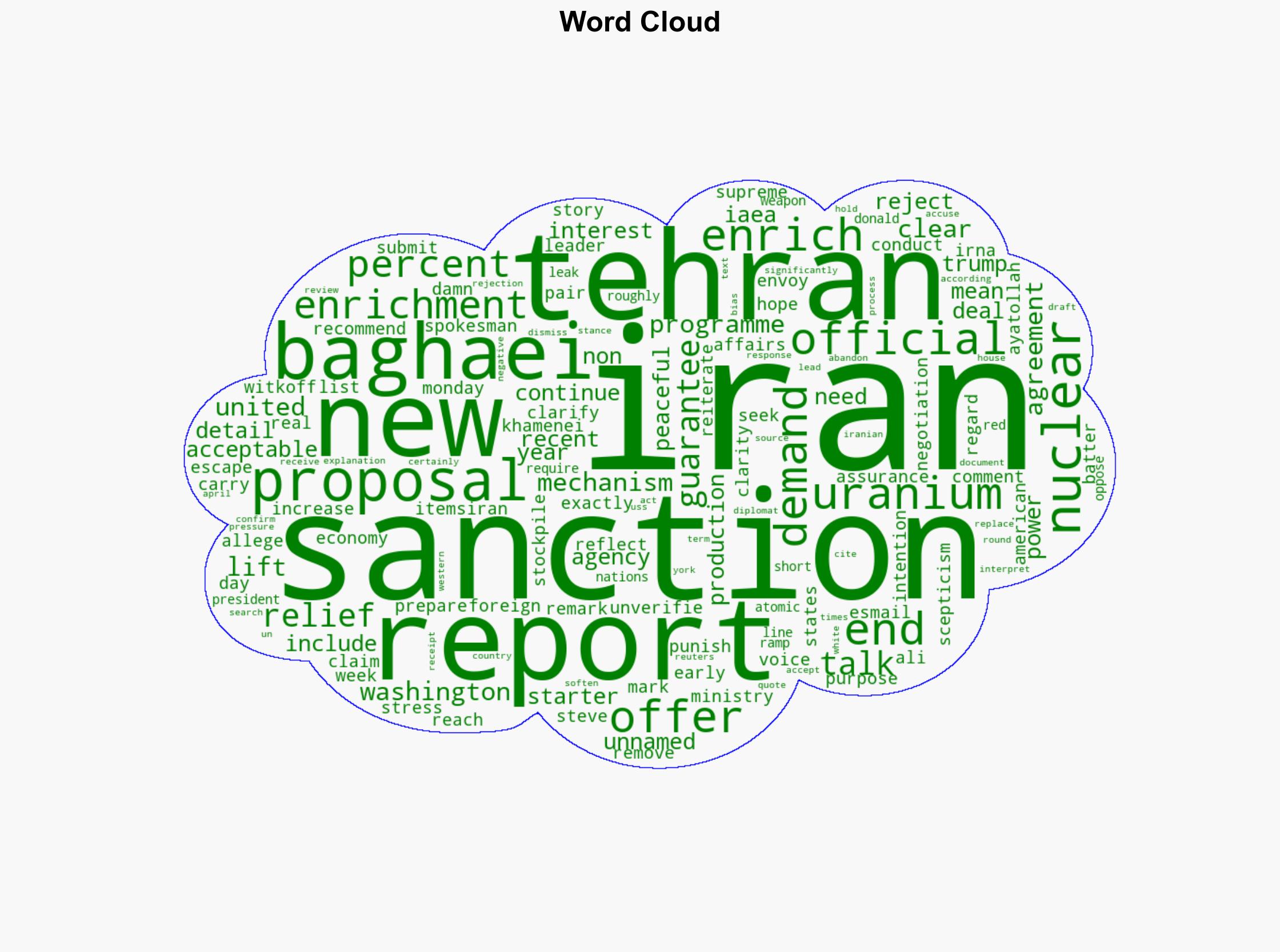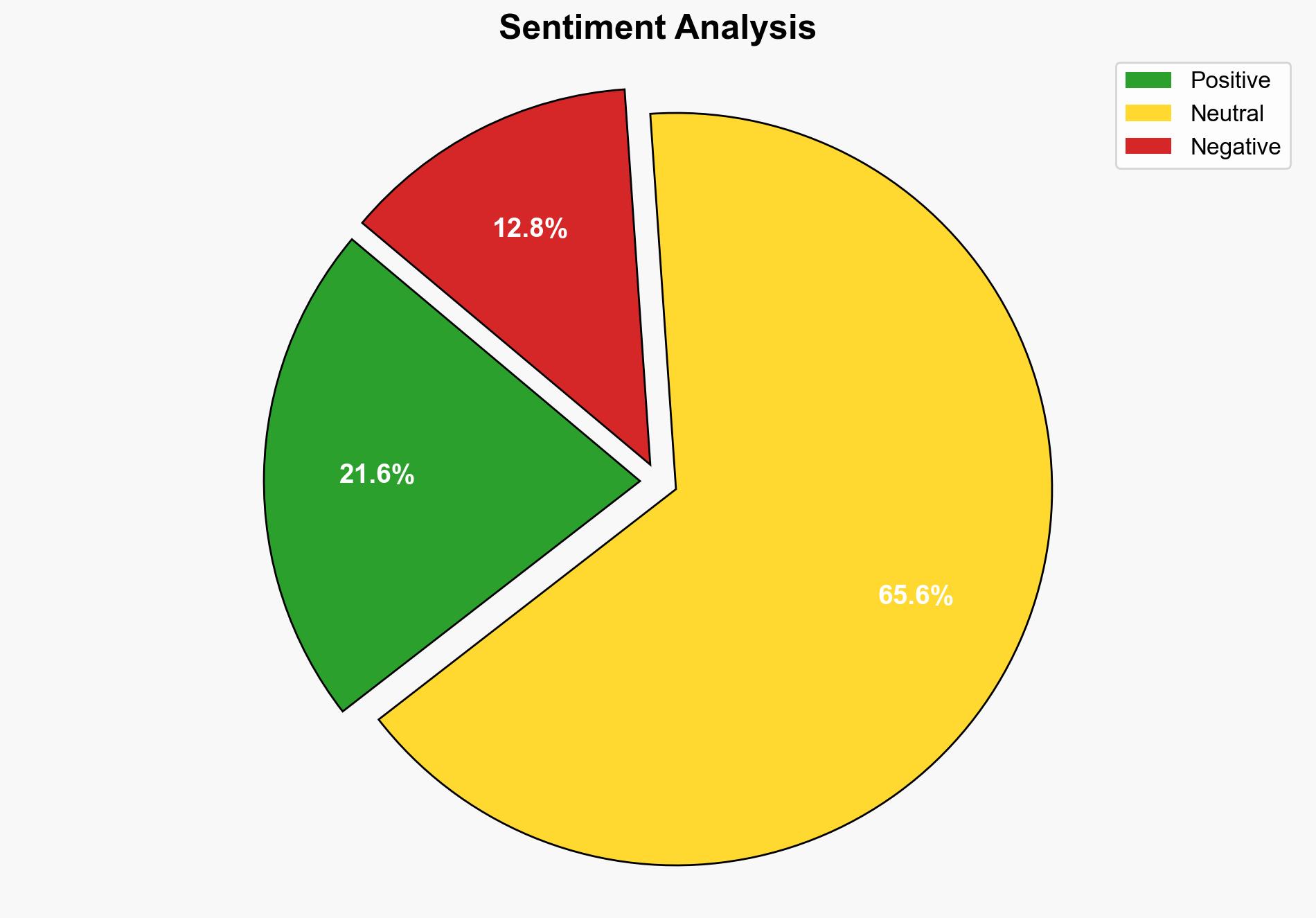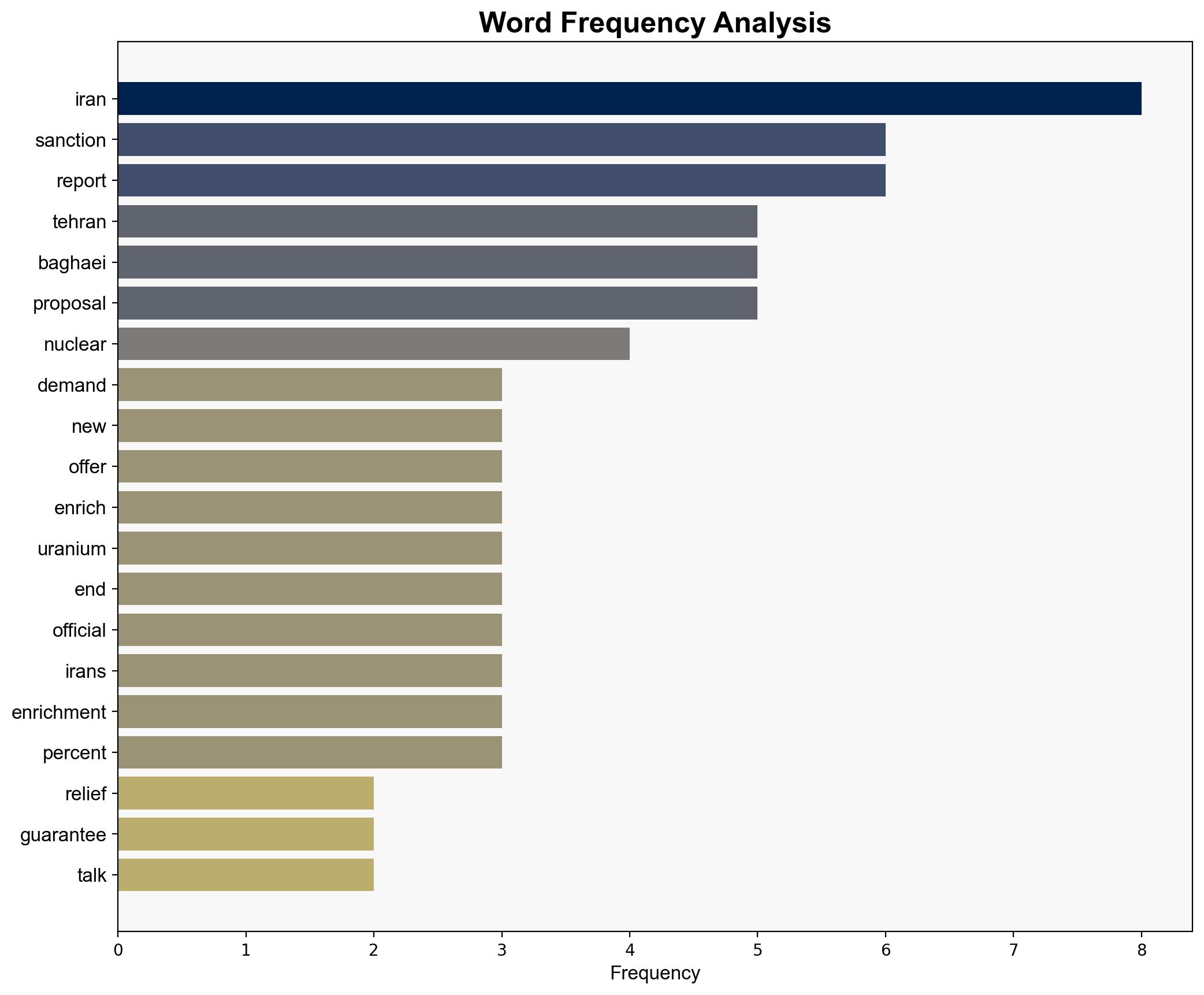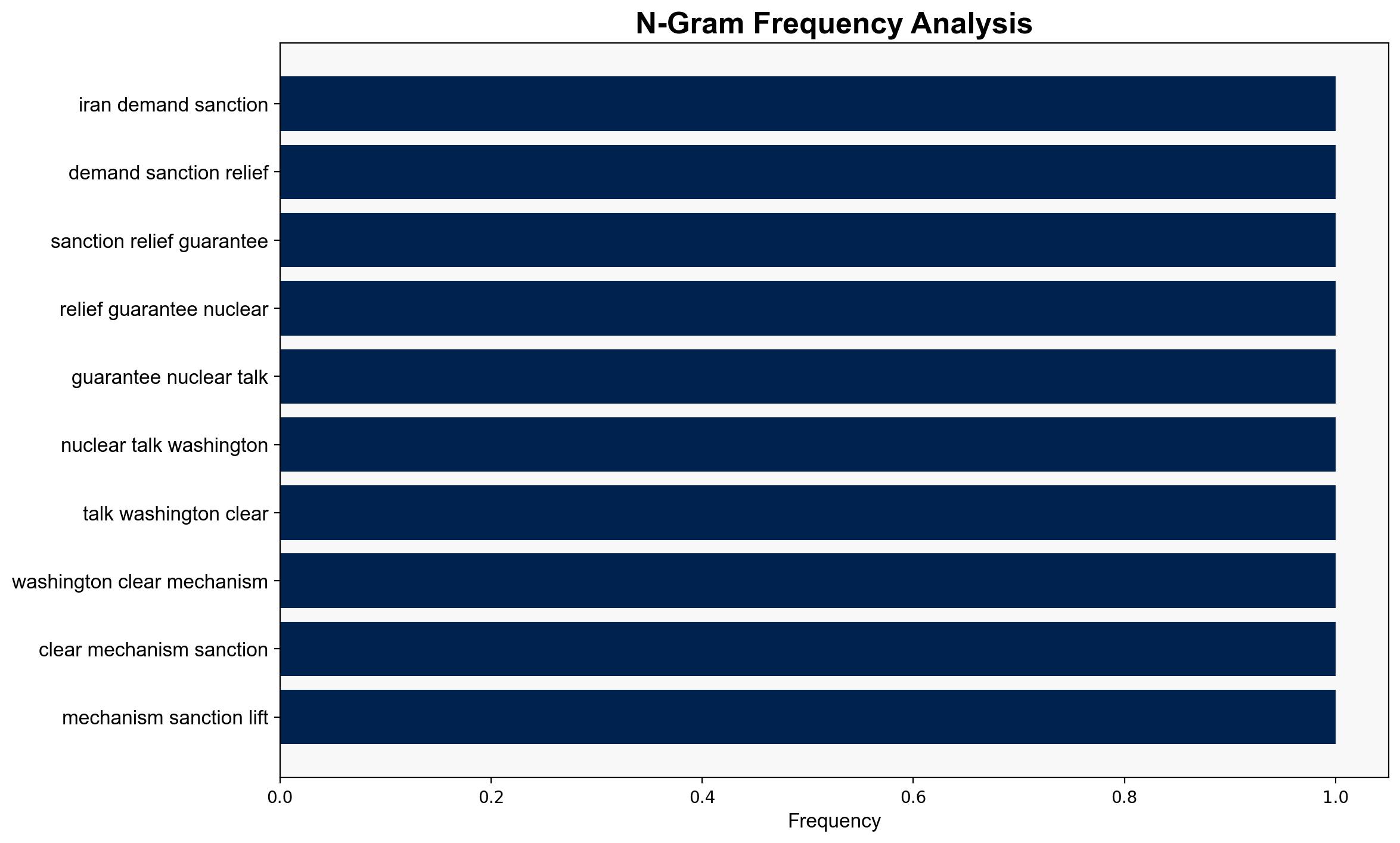Iran demands sanctions relief guarantee in nuclear talks with US – Al Jazeera English
Published on: 2025-06-02
Intelligence Report: Iran demands sanctions relief guarantee in nuclear talks with US – Al Jazeera English
1. BLUF (Bottom Line Up Front)
Iran is demanding a clear mechanism for sanctions relief as a prerequisite for any new nuclear agreement with the United States. This demand reflects Tehran’s skepticism about the US’s commitment to lifting sanctions, a concern amplified by past experiences. The Iranian government, represented by Esmail Baghaei, emphasizes the need for guarantees that sanctions will be genuinely lifted, including detailed mechanisms for their removal. This insistence is part of broader negotiations aimed at reviving a nuclear deal that the US previously abandoned.
2. Detailed Analysis
The following structured analytic techniques have been applied to ensure methodological consistency:
Causal Layered Analysis (CLA)
Surface events: Iran’s demand for sanctions relief guarantees.
Systemic structures: US-Iran relations, international nuclear agreements.
Worldviews: Distrust between Iran and Western powers.
Myths: Historical grievances and perceived betrayals in diplomatic engagements.
Cross-Impact Simulation
Potential ripple effects include increased tensions in the Middle East, impacts on global oil markets, and shifts in alliances as regional powers respond to US-Iran negotiations.
Scenario Generation
Best case: A mutually agreeable deal is reached, easing regional tensions and stabilizing the Iranian economy.
Worst case: Talks collapse, leading to heightened regional instability and potential escalation in nuclear activities.
Most likely: Prolonged negotiations with incremental progress and continued geopolitical maneuvering.
Cognitive Bias Stress Test
Biases such as confirmation bias and anchoring have been identified and mitigated by cross-referencing multiple sources and perspectives, ensuring a balanced assessment.
3. Implications and Strategic Risks
The primary risk is the potential for increased regional instability if negotiations fail. Economic vulnerabilities in Iran could lead to domestic unrest, while unresolved nuclear issues might trigger international sanctions or military responses. Cybersecurity threats could also emerge as a tool of statecraft in this geopolitical context.
4. Recommendations and Outlook
- Encourage diplomatic engagement with clear communication channels to build trust and transparency.
- Prepare contingency plans for potential economic disruptions in global markets.
- Monitor regional actors’ responses to gauge shifts in alliances and power dynamics.
- Scenario-based projections suggest focusing on diplomatic solutions to prevent escalation.
5. Key Individuals and Entities
Esmail Baghaei, Ayatollah Ali Khamenei, Steve Witkoff.
6. Thematic Tags
national security threats, nuclear negotiations, US-Iran relations, regional stability





